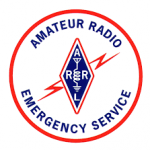 From ARRL:
From ARRL:
10/28/2021–A major nor’easter struck eastern Massachusetts and Rhode Island this week, with ferocious winds stronger than those that Tropical Storm Henri brought to the region in August.
Starting on the evening of October 26, eastern Massachusetts amateur radio operators on the Amateur Radio Emergency Service® (ARES®) and National Weather Service (NWS) SKYWARN™ storm spotter teams joined forces to help emergency services provide a focused and effective response as the powerful nor’easter caused widespread damage. Tree and wire damage, trees falling on homes and cars, and a few cases of direct structural damage to weakened structures have been reported. ARES and SKYWARN operations will continue until the impact of the weather system subsides.
“We have handled several hundred reports of damage, and photos of damage are streaming in from ARES and SKYWARN operators to support damage assessment efforts and to keep the NWS in Norton apprised of the severe weather conditions affecting the region,” said Rob Macedo, KD1CY, Eastern Massachusetts ARES Section Emergency Coordinator and ARES-SKYWARN Coordinator for NWS Boston/Norton.
ARES-SKYWARN operators relayed reports of hurricane-force wind gusts reaching 94 MPH in Edgartown, Massachusetts, at Chappy Ferry Point; 84 MPH in Dennis, Massachusetts; 79 MPH in Sandwich, Massachusetts, and 78 MPH in Rockport, Massachusetts. Amateur operators with WX1BOX, the amateur radio station at NWS Boston/Norton; Cape Cod ARES and SKYWARN, and South Coast SKYWARN completed overnight operations, when the peak winds occurred.
“The dedication of our volunteers to provide this critical information in a major storm like this one to the NWS, media, and emergency managers during such a grueling stretch is very critical to inform people what is happening during such a significant storm when they wake up in the morning, so they will hopefully make safe decisions to avoid being out in a significant severe wind situation,” Macedo said.
Cape Cod ARES was activated by the Barnstable County Regional Emergency Planning Committee (BCREPC) to staff the Multi-agency Coordination Center (MACC) at the Barnstable County Emergency Operations Center (EOC). The damages, power outages, and intermittent cell service from some providers could mean an extended activation for ARES members in Cape Cod and the Islands, Macedo explained.
According to the Cape Cod and Islands ARES District Emergency Coordinator Frank O’Laughlin, WQ1O, “Damage assessments in the region will give us a better sense of how long it will take to restore power and in some cases communication service to the Cape [Cod] and Islands area, and that will determine how long Cape Cod ARES will be needed, and if additional support from Eastern Massachusetts ARES will be needed.”
Macedo called the nor’easter “one of our more extraordinary weather systems within the last few years, and the most severe of several other major SKYWARN/ARES activations in this past year.”
As many as 500,000 customers lost power in the ARRL Eastern Massachusetts Section, with hardest-hit areas in southeastern Massachusetts, Cape Cod and the Islands, and the Cape Ann area north of Boston, where hurricane-force wind gusts pummeled the region for several hours. Maximum sustained winds were 50 and 65 MPH. Rhode Island reported nearly 93,000 customers without power at the peak. These outages were an order of magnitude greater than during Tropical Storm Henri in Rhode Island, and about five orders of magnitude more severe than Henri in Massachusetts.
Storm conditions wound down toward the evening of October 27, allowing the process of more widespread power restoration to begin.
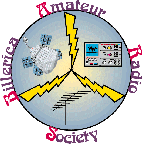 Tom Walsh, K1TW, writes on the Billerica ARS mailing list:
Tom Walsh, K1TW, writes on the Billerica ARS mailing list: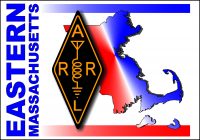

 Framingham ARA President John Iwuc, KB1XVY, writes on the FARA mailing list:
Framingham ARA President John Iwuc, KB1XVY, writes on the FARA mailing list: The next
The next  Bob Farquharson, WC1N, South Easton, MA, is operating from Fort Phoenix State Reserve in New Bedford (K-8409) for Parks On The Air. He was last heard on 7.060 MHz at 15:09 UTC, according to
Bob Farquharson, WC1N, South Easton, MA, is operating from Fort Phoenix State Reserve in New Bedford (K-8409) for Parks On The Air. He was last heard on 7.060 MHz at 15:09 UTC, according to 

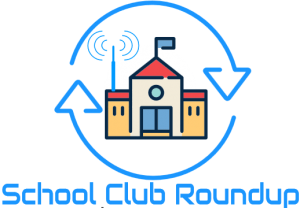 Joe Fitzgerald, KM1P, writes on the Yankee Clipper Contest Club mailing list:
Joe Fitzgerald, KM1P, writes on the Yankee Clipper Contest Club mailing list: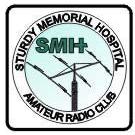 Ray Cord, K2TGX, writes on the Sturdy Memorial Hospital ARC mailing list:
Ray Cord, K2TGX, writes on the Sturdy Memorial Hospital ARC mailing list: Ken Caruso, WO1N, writes on the Yankee Clipper Contest Club mailing list:
Ken Caruso, WO1N, writes on the Yankee Clipper Contest Club mailing list: Stephen Johnson, KC1HO, writes on the W1ATD Marshfield Facebook page:
Stephen Johnson, KC1HO, writes on the W1ATD Marshfield Facebook page: The October, 2021 Section Newsletter is now available at
The October, 2021 Section Newsletter is now available at  As we get ready to return to Deerfield NH in a couple days to resume our beloved hamfest that we have all missed so much for two years it is obvious that there are some fundamental precautions we must institute in order to be in full compliance with all CDC, State and Town Departments of Public Health guidelines. We do not want to wear out our welcome. NEAR-FEST IS SAFE FOR ALL must be our motto!
As we get ready to return to Deerfield NH in a couple days to resume our beloved hamfest that we have all missed so much for two years it is obvious that there are some fundamental precautions we must institute in order to be in full compliance with all CDC, State and Town Departments of Public Health guidelines. We do not want to wear out our welcome. NEAR-FEST IS SAFE FOR ALL must be our motto! The New England
The New England  Doug Belcher, KC1NFL, writes on the Southeastern MA ARA mailing list:
Doug Belcher, KC1NFL, writes on the Southeastern MA ARA mailing list: